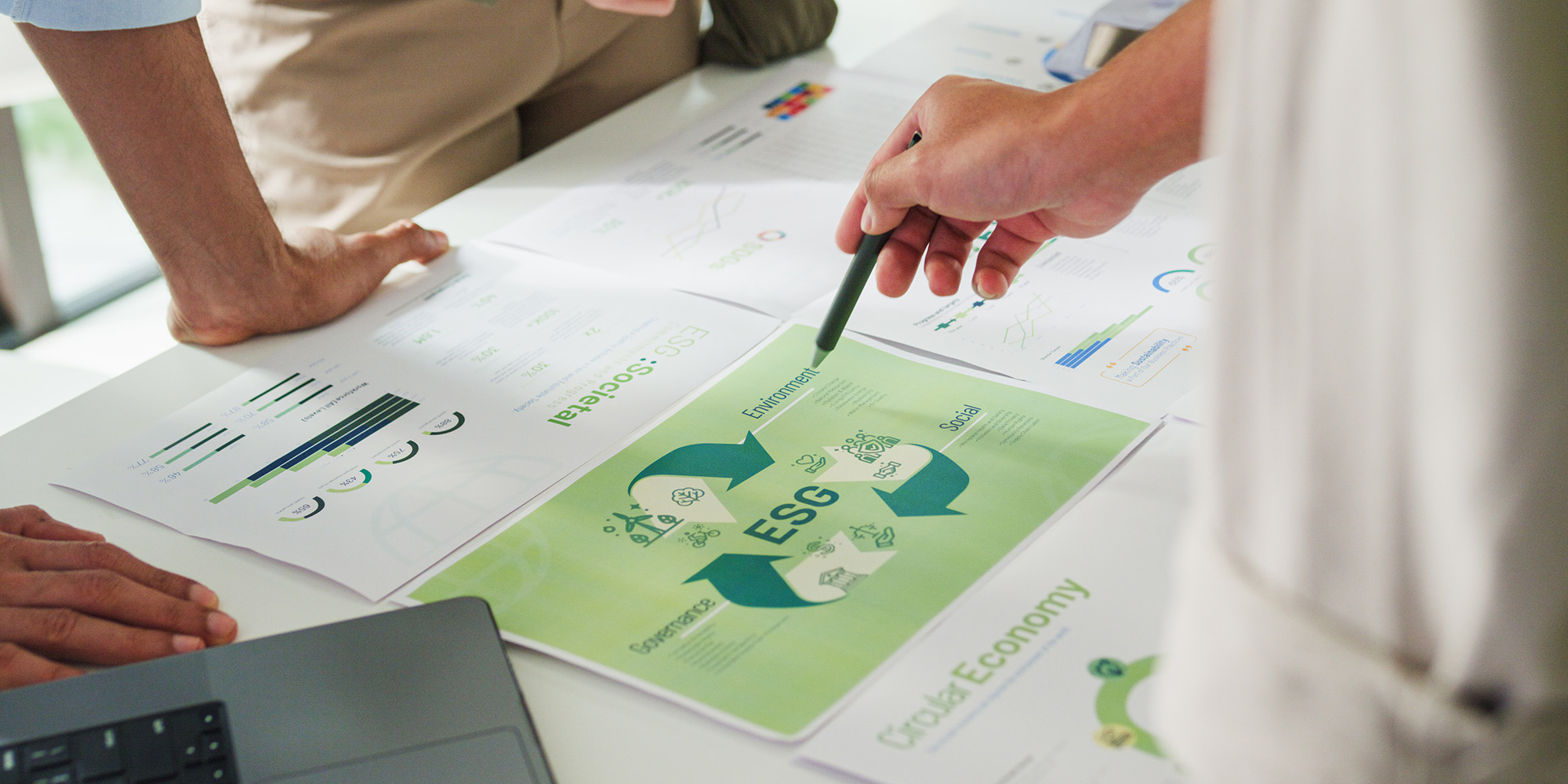What does the word sustainability mean in the business world?
The way I see it, sustainability has two legs. The first is about survival and succeeding in the long term — it’s all about the time perspective and how to stay competitive in the long run. The second is the professionalisation that is now taking place — a new set of skills that allow companies to create value and advantages around sustainable development.
Have you observed recent developments in how sustainability is understood among companies?
Sustainability has been important for a long time. However, the challenges have become more urgent because we haven’t been able to address them properly. The fact that sustainability is, at the same time, very important and very difficult has made it the defining challenge of our time.
Businesses have a crucial role to play. Thirty years ago, we thought sustainability was an issue for governments. Now we realise that is not enough, and we need companies to embrace sustainability as a strategy.
In the eyes of corporate leaders — it can be argued — the perception of sustainability has gone through different stages: first as a threat to profitability, then as a necessary evil, and then, for many, as a box-checking exercise. Do you see any recent changes?
We are in a new phase. I think of companies in the early stages of corporate sustainability like dolphins — they were making a lot of noise around it to get attention.
Now we are entering the stage of the whale. A whale is silent, it moves slowly. We’re going from “look at me” to doing things quietly. Sustainability work is now less about focusing on the regulatory aspect and more on creating value. How do we see opportunities? How do we link it to our strategy? I think it’s a healthy evolution — more about winning with sustainability than seeking recognition.
When it comes to building a business case for corporate sustainability, is there an approach that you would recommend?
It is shocking to me that most companies do not know how to build a business case for working on sustainability. This is a must. How else can we know how to scale, what is profitable, drive innovation, etcetera?
We are at a very interesting phase because in Europe we now have hundreds of companies reporting to the Corporate Sustainability Reporting Directive (CSRD). The reports are very comprehensive and give a lot of transparency. However, to me this is just a framework — the rules of the game — and we are not going to win by knowing the rules. We are going to win by delivering more value to customers, more products, more solutions.
Companies that work on sustainability find that, done right, it is very profitable, both in the short and long term. There is a link between good sustainability practices and shareholder value, customer value, employee value.
Do you see a backlash against ESG?
I hear a lot about the backlash on ESG, and there is one. However, I don’t think it is a backlash on sustainability as such.
We can break this issue into two. On the one hand, ESG comes from the outside in — it is the standardised way in which companies report on their performance (towards external actors). Sustainability, on the other hand, is a strategy that we create for our company to create value, to connect to our shareholders, our employees, our customers. It’s a plan that is unique to us, which comes from the inside out.
Both aspects are relevant. But I think the backlash has a lot to do with the complexity of ESG and especially the social aspect, which has become really complicated.
Can we talk about the changing sustainability landscape without talking about the United States?
We should be aware of what is happening in the US, but there is also another side to it. While there is a reaction against ESG, I see a lot of companies sticking to their aspirations and targets. I’m not saying there’s no backlash, but at the same time, sustainability work is occurring more globally than I’ve seen it over the last 20 years.
I also think that some commitments were never as ambitious as we thought they were. Many of these net-zero alliances and their partner companies are pulling out or scaling down their targets. But were they real commitments? We are at a moment of truth here. It’s like Warren Buffett said: when the tide goes out, you see who’s wearing swimsuits. He wasn’t talking about sustainability action, but the point stands. Now the tide has gone out on climate, and we see who is actually committed.
Some think it is getting harder to go beyond compliance and that customers, while still talking about sustainability, are paying and investing less in it. How should companies adjust?
There is a theory in sociology that says if you don’t know exactly what you’re doing, you end up copying others. Companies have previously acted as herds, but that is over now. Every company must figure out what is right for them. Where are the advantages? How can they find new business models? There will be work to do for compliance, but we have to go beyond that and find better arguments than those we had in the past.
If you want to watch the full interview with Prof. Knut Haanaes, click here.




.png?width=3840&height=2560&name=Sun(1).png)
.png?width=3840&height=2560&name=Landscape_2(1).png)





